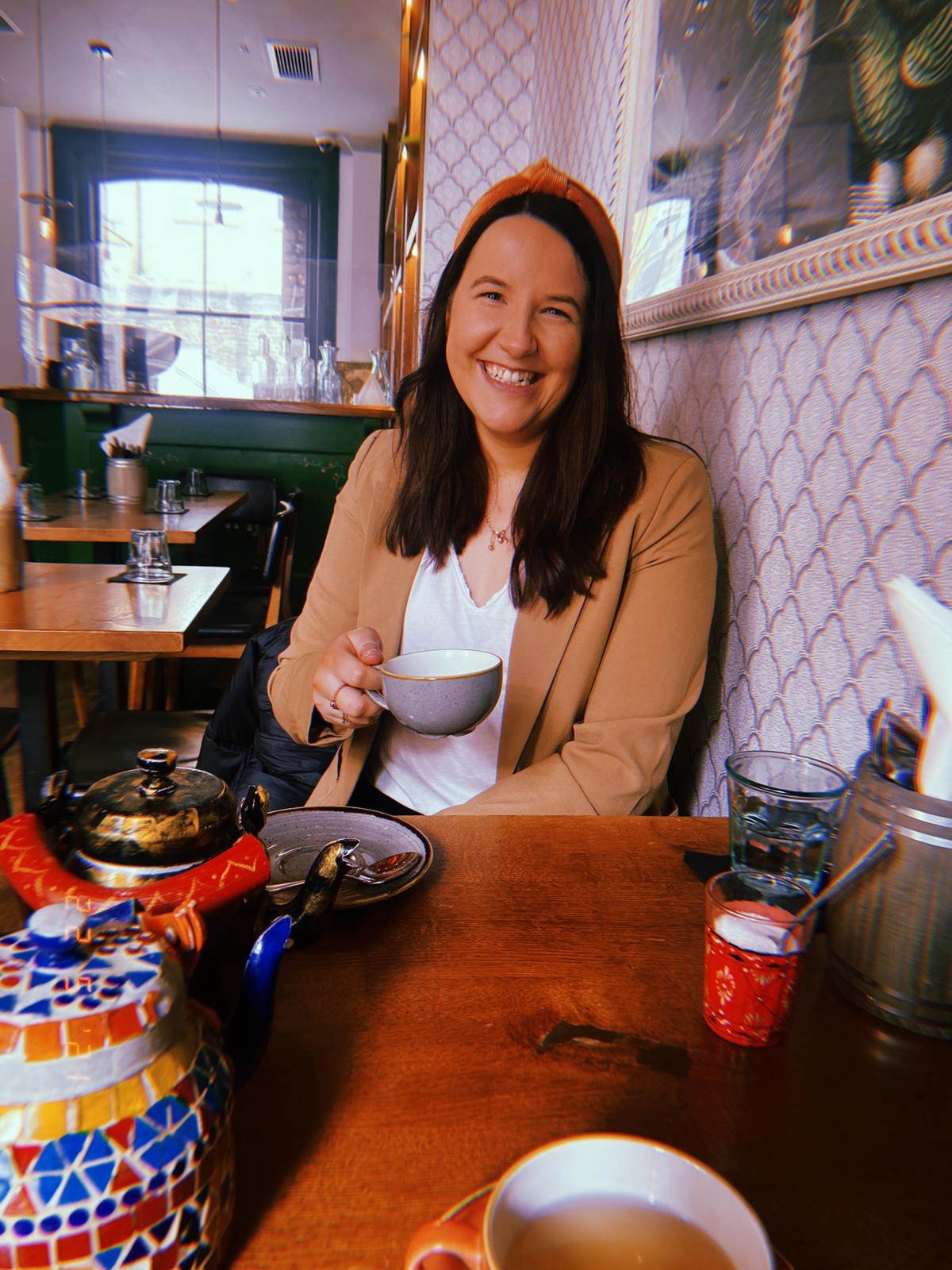Name: Emma McKee
Role: Dietitian
Where I work: Leeds and York Partnership Foundation Trust
Pronouns: She/her


Emma McKee
Name: Emma McKee
Role: Dietitian
Where I work: Leeds and York Partnership Foundation Trust
Pronouns: She/her
In 6th form I studied A-level Health and Social Care, Religious Studies and English Literature. I then completed A-Level Biology and Chemistry at a further education collage prior to commencing my degree.
I studied BSc (Hons) Dietetics at Leeds Beckett University 2018-2021.
My enthusiasm for food and nutrition first resulted in a career as a chef within the hospitality industry. During my time studying Culinary Arts Management, my knowledge and passion for food grew.
During this time, I felt that my interest in caring for and communicating with people was not being fully satisfied within this profession. Additionally, my mum worked as a children’s nurse and later lectured in children nursing. She always encouraged my interest in food; often spoke about the dietitians she worked with and was the one who first made me aware of the profession.
Looking back, I could not imagine doing anything else!
Before starting the course, I was worried that it was going to be very challenging and intense, due to the high admission criteria and science elements of the course. I had done lots of research about the role as I did not really understand exactly what a dietitian did.
As it is a role that is not widely known about, I would recommend checking out the British Dietetics Association (BDA) website as if you want to find out more!
While the course definitely had busy and challenging times, it was worth it and was such an amazing feeling completing my final placement and submitting that final assignment! Looking back, I could not imagine doing anything else.
I was aware of many other Allied Health Professional roles while researching dietetics. I considered occupational therapy and was close to applying for it. However, my passion for food and nutrition won over!
During placement there was not necessarily one big lightbulb moment when everything clicked. Instead, I found that that it was lots of practice, making mistakes, forgetting things, learning, asking questions and lots of reflection along the way.
The best piece of advice I can give (especially during placements) is to just GIVE IT A GO! This was a challenge for me as my learning style is largely that of a reflector and a theorist.
Throughout my short time working in mental health, I have appreciated how important the small things are for my service users. It’s easy to get caught up in your own agenda when seeing a patient. However, it is realising what’s important to the service user that makes the biggest difference.
It's realising what’s important to the service user that makes the biggest difference
During my final year at university, I had the opportunity to work part time as a dietetic assistant in a low secure forensic service. This was my first experience in a mental health setting and helped me decide where I wanted to go after my degree.
During my final placement, I applied for and got my first Band 5 Dietitian role with a local mental health trust. This is a rotational post in older adults, working age adults and learning disabilities.
I enjoy working as part of a close-knit, smaller team within mental health. I love the extra time I can spend to develop rapport with service users to understand their needs and goals.
Dietetics is absolutely a rewarding and varied career!
Want to find out more about the role of a Dietitian?